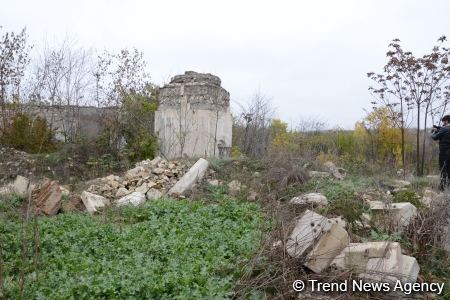BAKU, Azerbaijan, Jan. 29
By Ilhama Isabalayeva - Trend:
The damage caused by Armenians to the environment in the liberated territories of Azerbaijan was not condemned by any organization, Deputy Minister of Ecology and Natural Resources of Azerbaijan Vugar Kerimov said at a press conference, Trend reports.
“There are double standards in this regard,” Kerimov said. “Despite all this, our goal is to assess and determine the damage.”
“The results of the assessment will be provided for filing relevant claims,” the deputy minister added.
Following over a month of military action to liberate its territories from Armenian occupation from late Sept. to early Nov. 2020, Azerbaijan has pushed Armenia to sign the surrender document. A joint statement on the matter was made by the Azerbaijani president, Armenia's PM, and the president of Russia.
A complete ceasefire and a cessation of all hostilities in the zone of the Nagorno-Karabakh conflict was introduced on Nov. 10, 2020.
Armenian Armed Forces launched a large-scale military attack on positions of the Azerbaijani army on the front line, using large-caliber weapons, mortars, and artillery on Sept. 27. Azerbaijan responded with a counter-offensive along the entire front.
Back in July 2020, the Armenian Armed Forces violated the ceasefire in the direction of Azerbaijan's Tovuz district. As a result of Azerbaijan's retaliation, the opposing forces were silenced. The fighting continued the following days as well. Azerbaijan lost a number of military personnel members, who died fighting off the attacks of the Armenian Armed Forces.
The conflict between the two South Caucasus countries began in 1988 when Armenia made territorial claims against Azerbaijan. As a result of the ensuing war, the Armenian Armed Forces occupied 20 percent of Azerbaijan, including the Nagorno-Karabakh region and seven surrounding districts. The 1994 ceasefire agreement was followed by peace negotiations.






